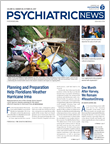I’m a millennial, part of a generation for whom using social media is supposedly second nature. However, I doubt that any of you “follow” me on social media, given my abandonment of these means of communication. Deciding how I should engage in digital communications as a psychiatrist has been something with which I’ve been wrestling for a while.
I recall a time when a patient wanted to stay in touch with me by email. I was flustered, unsure whether that was a best practice or a boundary violation. In med school, we learned so much about pathophysiology, brain circuits, and drug mechanisms of action that it is easy to become insulated from Real Life 101. My senior colleagues are facing the same questions: Where do we begin? What are the potential pitfalls? What is proper social media etiquette? How should I set boundaries? Is it as difficult as it seems? I thought so, and that’s what led me to quit.
Yes, I gave up on social media a few years ago. Quit. Cold turkey. At the time, I felt liberated—like a digital hermit, freed from the pressures of online life. I left because part of me worried I would write something inappropriate that would later be deemed offensive and disastrous for a medical career; another part of me was consumed by the demands of residency training, with no time available to stay up to date on rapidly changing social media platforms.
But I’ve decided to give it another try and deal with some of the questions that gave me so much anxiety in the past. I have discovered some useful resources. For starters, there is the AMA Code of Medical Ethics. Chapter 2 has specific information on electronic communication with patients and maintaining professionalism. Among the pointers: it should not be used to establish a patient-physician relationship, patients must be made aware of the risk of a breach in confidentiality or loss of privacy, consent to communicate must be obtained, and professional standards must be upheld.
Precautions we should all take include separating personal and public content, maintaining appropriate boundaries in accordance with ethical guidelines, and remaining steadfast in our duty to protect patients and their information.
Other guidelines that we should adopt are common sense. Among them: we should not tolerate offensive, discriminatory, or harassing content; personal attacks and other messages that can be perceived as violent; and illegal activities. Also, we should not engage in commercial activities or use copyrighted material.
With guidelines like these, it’s not quite the ethical conundrum I imagined it to be. So, I am back in. Our thoughts, opinions, and values matter! Social media can serve as an instrument—a voice—for issues that are important to us. I joined LinkedIn several months ago, and I am enjoying the connections to friends and colleagues and sharing professional information. I am also considering becoming more active on Twitter, which is a good vehicle for such advocacy work as spreading messages about the effectiveness of psychiatric treatment, correcting misinformation that feeds stigma, speaking out against legislation that could harm our patients, and sharing links to relevant articles and videos in the lay media.
I highly encourage you to
view a short video on social media on APA’s website. Also, the APA website is extremely user friendly. We are fortunate to have APA staff members who are very tech-savvy, accessible, and happy to give feedback. APA’s Council on Communications launched a campaign at the 2017 Annual Meeting in which council members wore a button with the message “Ask me about social media.” The invitation still stands; the names of council members are available
here, and we can be contacted through the membership directory.
My venture back into social media may seem like an Odysseus-style homecoming at first, but oh! What stories we have to share! I am braver and taking bigger strides in the digital world. So what do you say? Are you ready to give social media a try? ■
The AMA Code of Medical Ethics can be accessed
here.

